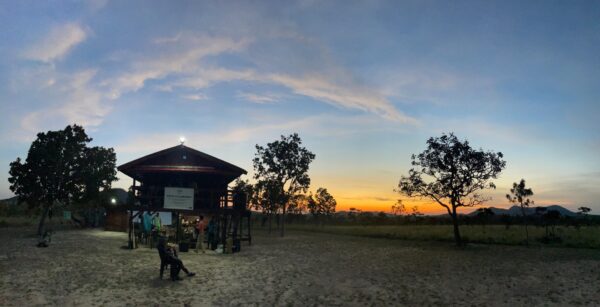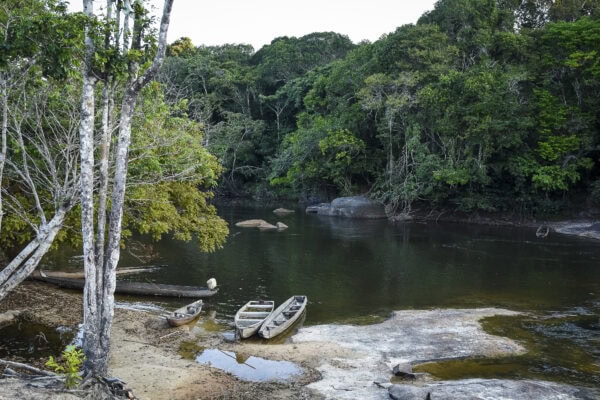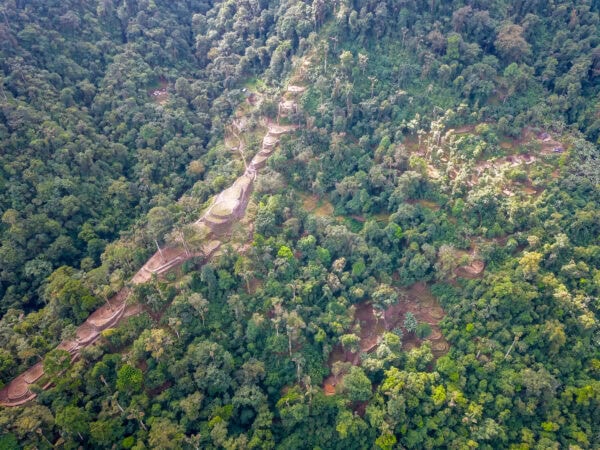Global Forest Watch is proud to introduce this year’s 11 Small Grants Fund recipients. These organizations will join the distinguished cadre of 25 past grantees in using Global Forest Watch tools, data and knowledge to improve forest management, transparency and accountability around the world.
Launched in 2013, the Small Grants Fund provides financial and technical assistance to civil society organizations that aspire to integrate GFW tools and data into their work. With over 600 outstanding applicants from 95 countries, the selection process was more difficult than ever. This year’s diverse group of grantees will work in more than 15 countries to address deforestation drivers through forest monitoring, advocacy, journalism, education, capacity building, research, and more!
Read on to learn more about the 2016 projects.
Crossing borders
Ecosystems are not contained by national boundaries, which is why we are excited to have several projects that span across country lines. TheAmazon Conservation Team (Colombia and Suriname) will evaluate the drivers of deforestation in threatened Amazonian ecosystems by training local communities to ground truth GFW alerts and collect field data that will be used to analyze high-resolution satellite imagery. Global SchoolNet Foundation (United States, Russia, Canada, Taiwan, Brazil, Uruguay and Ghana) will build ties between classrooms around the world by training high school students in investigative journalism techniques. These students will produce and share short digital stories about deforestation in their areas, and actions that their communities can take to address key drivers. Sarstoon Temash Institute for Indigenous Management (Belize and Guatemala) is establishing a binational forest monitoring system to monitor deforestation from illegal logging and oil drilling, and to effectively advocate for sustainable government policies on both sides of the border.
Improving policy and implementation
Policy is central to successful forest management, and many of our projects are using GFW to inform policymakers and other stakeholders. In Ecuador,Regional Water Fund FORAGUA will improve the local management, monitoring, and enforcement of 11 municipal watershed reserves by providing training on the Global Forest Watch platform to environmental technicians, high school science teachers, and journalists. Asociación Ambiente y Sociedad (Colombia) is developing an online tool to inform local communities of infrastructure mega-projects and their potential impact on priority conservation areas, to enhance decision making and contribute to resolving conflicts. In Vietnam, People and Nature Reconciliation (PanNature), will use GFW data to monitor and evaluate established payment for environmental services programs within three provinces, and make recommendations to policy makers on how to improve their efficacy. Pronatura will use GFW in order to inform Mexican decision makers on meeting their commitments to global initiatives such as REDD+ and the Bonn Challenge.
Embracing mobile technology
Globally, mobile devices now outnumber humans, and several of this year’s projects are bringing GFW into people’s pockets by taking advantage of GFW’s new mobile capabilities. Educating local community members on the value of Global Forest Watch data,The Proforest Initiative plans to empower smallholders in Indonesia or Latin America to evaluate forest change and high-conservation-value areas through the use of a mobile phone application. The Working Group on Forest Certification Ghana will build capacity in community-based institutions to use satellite technology and a mobile application to monitor and address illegal deforestation activities.
More innovations
Local problems need local solutions. These final two projects address local challenges with context-appropriate approaches. African Conservation Foundation (Cameroon) plans to make Global Forest Watch data available in a format that will be interactive, inclusive, and informative for community members lacking internet access: the team will establish effective community forest monitoring through participatory 3-dimensional modeling in the Highlands Ecoregion. Proyecto Mono Tocón (Peru) will create an early warning system with drones and acoustic data to gain an understanding of destruction to the habitat of the critically endangered San Martin Titi Monkey.
For more information about the Small Grants Fund, including future calls for proposals and descriptions of past projects, please visit our website and our 2014 and 2015 story maps.
Media Relations
For press release inquiries, please contact us at info@amazonteam.org.
Related Articles
Share this post
Bring awareness to our projects and mission by sharing this post with your friends.




